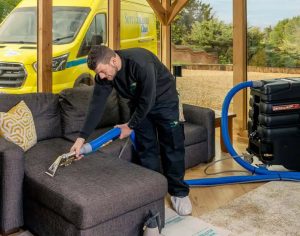Over the last few years, the home care market has grown from strength to strength. However, it hasn’t all been plain sailing, with an ongoing global pandemic presenting an unprecedented challenge to care providers.
Home care services have always been vital to older members of the community. When the decision is made to reach out for help in later life, homecare is understandably one of the most preferred options, allowing customers to stay in the comfort of their own homes, surrounded by the things most personal and familiar to them. In stark contrast, having to move into a hospital or care home can be unsettling and confusing, especially for the 850,000 people in the UK living with dementia.
The pandemic has only added to these concerns. The highly contagious nature of the virus means that the most vulnerable people in our communities have sadly been hit hard. People who had COVID-19 often didn’t show symptoms, and asymptomatic friends and family unwittingly spread the virus to many of the elderly. Those receiving care in their own homes benefitted from limited contact with the outside world during lockdown periods, most only receiving visits from a very small team of trusted care assistants, which has helped give them the safety and security they needed.
Our staff here at Bluebird Care have continued to provide live-in care, complex care and other services to people who are elderly. However, care at home isn’t just for those getting older, younger people with physical or learning disabilities have also benefitted from uninterrupted care provision over the last year. With official government messaging over this period encouraging people to stay home and social distance, family and friends haven’t been able to check in on their loved ones as they normally would. Fortunately, care staff across the country have stepped up to the plate whilst the spotlight has been on them and have provided support and companionship to those who need it most whilst following strict hygiene guidelines, ensuring their needs continue to be met in the safest way possible.
It isn’t only the pandemic that we must rally tackle. There is now a greater need for care at home services, especially with the government taking steps to reduce expenditure on emergency services and A&E departments. Many hospital patients are elderly, so predicting the likelihood of someone ending up in hospital and preventing this from happening is key to saving money. Homecare businesses like ours help on both counts, working alongside an individual’s support bubble and using technology to identify if they are at high risk. Most of our franchise owners live in the same area as those that they care for, helping them feel connected to their customers, and as such giving back to their community by helping them stay in their own home.
In addition, the UK has an ageing population so homecare is, and will continue to be, in high demand. By 2040, it is projected that 1.6m people in the UK will have dementia, and by 2050, one in four people in the UK will be aged 65 years and over. Naturally, homecare businesses across the UK are growing to provide services to more people. And this growth is unlimited; care is delivered by people, so as long as we can continue to recruit those with the right mentality, we can continue to care for as many people in each territory as needs it. At Bluebird Care, our businesses can range between 25 to 300 people in size and serve a large territory of around 150,000 to 200,000 people. Ultimately franchisees in homecare can employ more staff and serve more customers, over a 10 year period, than many other franchise sectors as we are not as limited by the same factors.
All of this means the homecare sector offers huge opportunity for growth. Turnovers can range from £250,000 to £6,000,000, with yearly profitability ranging from 20% to 25%. With the government’s push for more care in the community and an ageing UK population, growth is sure to continue. Over the past 12 months, we have seen some of our biggest businesses increase their revenue by nearly 50%, and we haven’t reported a single business failure, despite the emergence of COVID-19.
As we have already discovered this can be attributed to the performance of the sector as a whole, however, we can also show that the strength of the franchise network plays a significant role too. Ideally, we make sure that our owners have a middle/senior management background with heaps of business acumen and experience managing large teams to ensure their business thrives. Our award-winning franchise support team, including Business Development, Marketing and Quality and Compliance, can fill in the gaps in knowledge and provide the resources needed for those with no or limited first-hand experience of the care sector. A great culture that encourages peer-to-peer engagement means experience is shared and everyone gets to contribute to the overall success of the brand. Ultimately the franchise system has to be able to offer the full range of services, not just focusing on ‘light-touch care’, to unlock the scalability that exists if you utilise all of the tools available.
As the population increases, we look forward to seeing how the homecare sector will continue to grow and thrive.
This article comes courtesy of Bluebird Care, the market leading and largest franchise provider of homecare services in the UK.


































